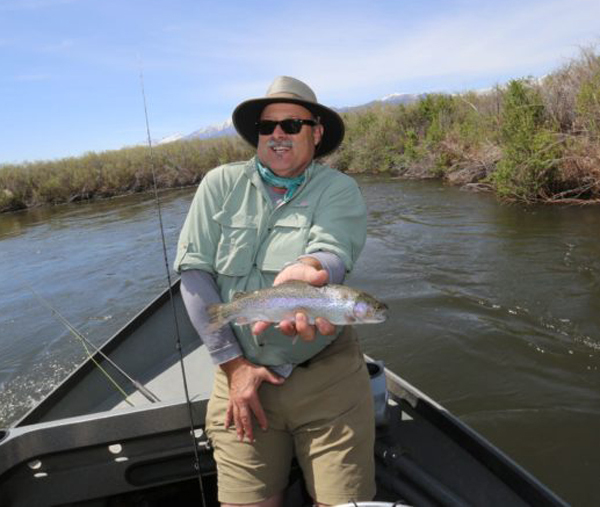
Report Date:
https://tomloe.com/The “catching” has been sporadic to slow overall. Water conditions have improved some as flows are down to 315cfs. from a high of 345cfs. recently. Wading the wild trout section at flows over 300cfs. becomes problematic. Fluctuating water levels will negatively impact the “catching”. Hatch cycles can be disturbed, & the fish will relocate positions until conditions stabilize. The “down time” typically lasts a few days depending on how much of an increase/decrease the water level changes. The cold water mayfly called the “blue winged olive” thrives on the MO, & it’s emergence pretty much ends by May. It’s predecessor- Ephemerella, commonly called Pale morning/evening duns the new mayfly kid on the block. You may also see some super sized mayflies called “drakes”. The nymphs are huge, & large Assassins, or FP PT’s will suffice for their profiles. We are seeing the last generations pop now, so use those smaller #18-20 profiles to match the hatch. The spring caddis, & little golden stoneflies are now emerging as well. The caddis adults are larger than the summer profiles. Have some #14/16 high-vis, or natural elk caddis imitations handy when it gets warm. When air temps are above freezing at daybreak, look for a significant hatch to begin late morning. It can last as long as 4 hours; but typically peaks after 90 minutes around mid-day this time of year. The wild trout really focus on this cycle, and fly fishers who consistently get into double digit numbers in the wild trout section have BWO/PMD adult profiles in the #16/18 range, with nymphs like Assassins, flashback pheasant tails, & birds nest patterns for the periods before, & after the hatch. Small crystal olive larva patterns, #20/22 gillies or crystal midge pupa/emerger imitations, & #18 broken back tiger or zebra midges are good calls for colder days. Have some parachute midge adult profiles when it gets cold, the fish will look for midge clusters if the BWO’s don’t come off. Streamer fishing is the right call for off colored, rising water. Predatory fish take advantage of small baitfish that get washed into the stronger currents as they seek refuge in slower pools. Streamers are also a higher visibility pattern, & stand out amongst the debris that is associated with rising water levels. Drift boat trips have been fair/good with numbers of planted rainbows, and a few wild browns in the counts. Guided drift boat trips are a great way to get into secluded sections of the river, & fish the higher water levels. We fish streamers, casting sinking tip lines with a unique, user friendly method called the “dip & strip”. I strongly suggest this program for novices, and those wishing to learn how to fish streamers. Hot flies this week are smaller Punk Perch & Loebergs.